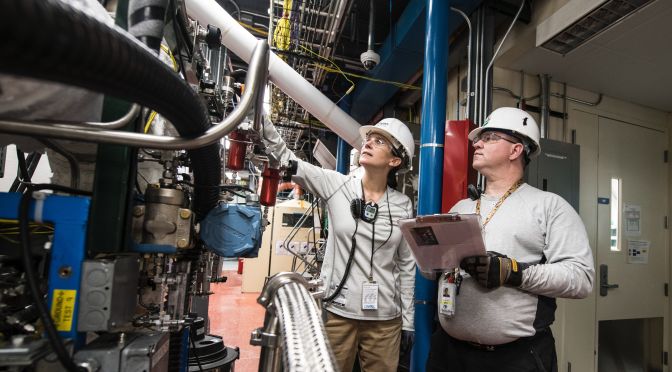CMG Technologies was formed following a recent management buyout of the French owned MIM operation Egide UK, based in Rendlesham, Suffolk. Today the business is reported to be thriving after several years of diversifying its markets and enhancing its capabilities with a broad range of advanced materials aimed primarily at the aerospace, automotive and medical sectors. PIM International’s Nick Williams reports on recent developments at the company.
Despite the UK being home to a number of highly regarded research institutions active in MIM, along with Sandvik Osprey, a world leader in the production of MIM grade gas atomised powders, the country is not widely associated with MIM components production. However, changes in the ownership of one of the UK’s leading MIM producers based in the small Suffolk town of Rendlesham, look set to mark a new phase in the growth of MIM technology in the UK.
On November 1st Egide UK, a producer of metal, ceramic and plastic injection moulded components established in 1998, was purchased by its management team from the French parent company Egide SA. The new company, Conway Marsh Garrett Technologies Limited, now trades as CMG Technologies. Egide UK had successfully operated as part of the Egide SA Group since the French group’s acquisition of the business in 2002. In recent years, however, the parent company’s business strategy changed and, as a result, there was no longer a requirement for the in-house production of precision MIM hermetic packages and related components for use by Egide SA.
As MIM production for the parent company was reduced, Egide UK’s management team successfully diversified production into a range of new markets and in the last two years all MIM production was for third party customers. “During this period of diversification the company achieved significant growth whilst at the same time remaining profitable,” stated Chris Conway, Managing Director of CMG Technologies. The company is now the largest MIM operation in the UK.
In addition to Chris Conway, CMG Technologies’ management team includes Phil Marsh, Technical & Production Director, and Rachel Garrett, Technical Sales & Marketing Director. The three are today the sole shareholders in CMG Technologies. Chris Conway told PIM International, “Becoming CMG Technologies is another milestone in our fifteen year history. Whilst the name has changed, the way we operate and our team of dedicated employees remains the same. Other than the change in name nothing else will change, we will continue to offer the same high level of service and quality that we have always strived to achieve. Our vision is to maintain our position as the MIM market leader within the UK whilst continuing to maintain and expand upon our diverse array of blue chip customers. We also aim to open up new market sectors with the development of new materials, in particular MIM titanium.”
CMG Technologies supplies to a number of tier one, blue chip companies such as Strattec Security Systems to whom it supplies a special finish surround for the Aston Martin keyfob, Siemens, Perkin Elmer and Autocruise, part of the TRW Automotive Group. These and other clients operate within an array of industries. The company’s main markets, however, are medical, luxury automotive and industrial.
“We have diversified into a number of markets, which gives the business strength and stability particularly when certain markets fluctuate. We don’t see this changing as a result of the management buyout,” stated Rachel Garrett.
Swann-Morton, a world leader in the manufacture of surgical scalpel blades, handles and disposable scalpels uses CMG, under an exclusivity agreement, to supply almost the complete range of the company’s Metal Surgical Handles. Having the handles manufactured by Metal Injection Moulding has, it was stated, brought many benefits for the client.
Swann-Morton told PIM International, “We have always worked very closely with CMG/Egide on the design of the handles to ensure that the parts are optimised for the process. As such, together we have pushed the boundaries of the process as CMG now supply handles to us which are 210mm long. They are also supplying us with a hollow handle which is made up of two parts and then sintered together as one.”
“CMG Technologies aren’t just a supplier to us, we view them as an extension of our own business. It was a big decision for us to outsource the manufacture of our handles, but it’s one we’ve never looked back on.”
Whilst the UK is a key market for the company, more than 40% of CMG Technologies’ business comes from overseas. “We are a global supplier with customers in Europe and further afield. We expect this international area of our business to continue to grow in line with UK sales,” added Rachel Garrett.
Materials and feedstock
Commenting on the material types processed at CMG Technologies Phil Marsh told PIM International, “The most commonly used materials for us are 17-4PH and 316L stainless steels. However, we also process kovar, nickel iron, copper, 100Cr6, iron, magnetic alloys and ceramics, as well as advanced materials such as Hastelloy and Inconel. We always strive to continuously push the boundaries of MIM to keep us ahead of the competition and to enable us to take on a greater range of projects. As a result, we have recently developed the ability to process a number of more exotic materials including precious metals and titanium.”
Whilst CMG Technologies produces the majority of its own feedstock in-house, the company also purchases off the shelf feedstock for specific applications. Phil Marsh stated, “We now process parts using BASF’s Catamold system as well as mixing our own feedstock. Having both routes is a huge advantage as it covers all possible requirements, gives us a great amount of flexibility and enables us to cost our products as competitively as possible.”
Phil Marsh also commented on the advantages that in-house feedstock production can offer. “Creating feedstock in-house allows us to finely tune the material to meet specific tolerance and surface finish requirements. This enables us to produce parts of very high quality and precision. Where necessary we use much finer powders than typically found in off-the-shelf feedstock, as well as irregular or spherical powders, which help us to achieve better densities, distinctly improved surface finishes and tighter tolerances. Using the Catamold system does however also have its advantages as it’s excellent for larger parts with thicker sections or where a more rapid cycle time is required.”
He added that the ability to manipulate powder to binder ratios to control the shrinkage of a part has enabled their specialists to change materials used for a specific tool without having to make expensive tool modifications. This, it was suggested, is particularly helpful when customers have to move the business to CMG Technologies from another supplier, allowing for very short lead-times and avoiding the need for costly tool modifications.
Titanium MIM at CMG Technologies
A number of titanium MIM products are under evaluation at CMG Technologies. The technical developments for the company’s titanium process were achieved through a joint collaboration with Johnson Matthey and Sheffield University. The company prepares its feedstock by mixing titanium powder with its own binder system, enabling it to achieve an excellent surface finish of around RA 0.6 and a high density of around 95%. The MIM titanium parts that are produced meet the ASTM grade for MIM Ti6Al4V for surgical implant applications.
Chris Conway told PIM International, “There are many applications for MIM titanium including weight-saving components for the aerospace and automotive industries and biocompatible products for the medical sector where the material’s strength and durability are also an advantage. However, as titanium is a highly-priced commodity these benefits can come at a cost. By choosing MIM as the route of manufacture, customers have the distinct advantage of having the ability to produce a net-shaped component with no wastage, therefore reducing their costs significantly.”
CMG Technologies is currently working on a project with a medical company to make titanium components for implantation. Due to the restrictions of the product’s current method of manufacture, the geometry of the part had been simplified at the expense of its functionality. Chris Conway stated, “Our customer has redesigned the product taking advantage of MIM’s capabilities. This has allowed us to produce a competitively priced, highly complex component which includes features that couldn’t be achieved through traditional routes of manufacture but will have multiple benefits to the implant patient giving them a better quality of life.”
Production facilities
The company currently operates six Arburg moulding machines, six debinding ovens and four sintering furnaces and employs a staff of 30. Phil Marsh stated, “We have recently invested in a fifth sintering furnace which once commissioned will increase our capacity for production parts, as well as freeing up space for development projects and enabling us to sinter titanium in-house. We work with customers on projects of various volumes ranging from as few as 500 components a year up to 500,000 a year, but with our expansion, we have the capacity to meet the needs of quantities into the millions.”
As well as outsourcing some tooling production to highly competent UK based tooling companies CMG Technologies also has its own in-house tool room. “Not only does our tool room produce tools of exceptionally high standards, they also produce a variety of jigs and fixtures which help ease and improve production, which in turn increases our yields and quality standards,” added Phil Marsh.
“By having our own tool room we are also able to offer quick turnarounds for design modifications and offer expert advice on ways to optimise parts for our MIM manufacturing route. Another benefit is the fact that if customers have existing tooling which they want to move across to us, we can quickly service and modify the tooling for our machines without the need for costly new tooling investments. This was particularly helpful to the customers of Metal Injection Mouldings Ltd in Altrincham [UK] because when that business closed they advised their customers to transfer their tooling to us. In such cases, we could be a continued source of supply with minimum delay and cost.”
The tool room is also experienced at producing prototype tooling with a very short lead-time and relatively low cost. “This is a major benefit if a project has tight time to market timescales. Our customers can have a MIM product in their hand within a matter of weeks to help keep their projects moving quickly,” stated Phil Marsh.
Commenting on the outlook for MIM manufacturing in the UK, Rachel Garrett told PIM International, “We take a lot of pride in the fact that we are a UK based manufacturing company with all operations taking place in one location in Suffolk. We have seen a clear move by companies deciding to “reshore” their purchasing activities back into the UK and Europe. Now that we are a stand-alone British company we hope to help support this even further by giving companies a route to source high quality, complex components at a competitive price, overcoming rising overseas production and shipping costs, simplifying transport and logistics whilst at the same time reducing their carbon footprint.”

